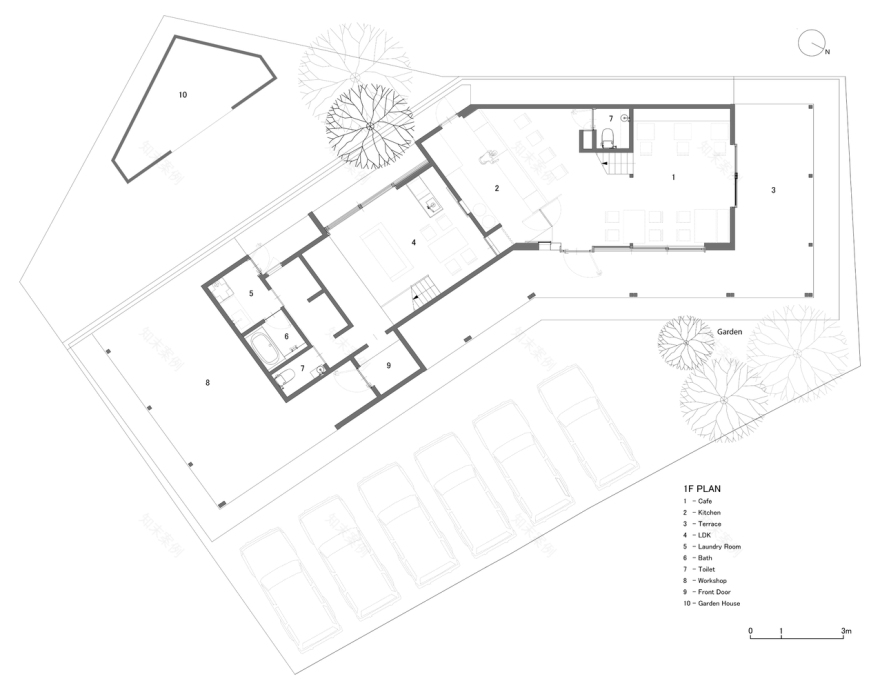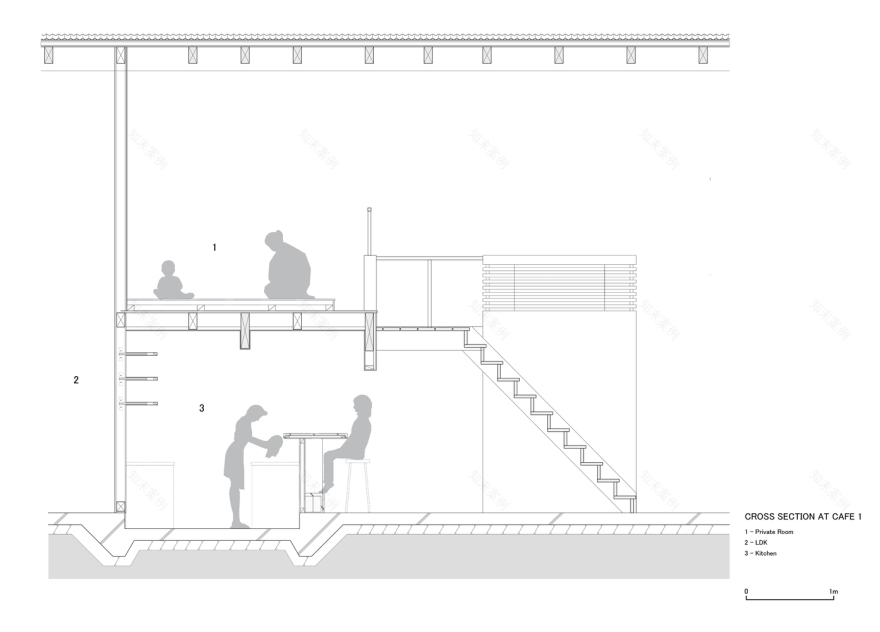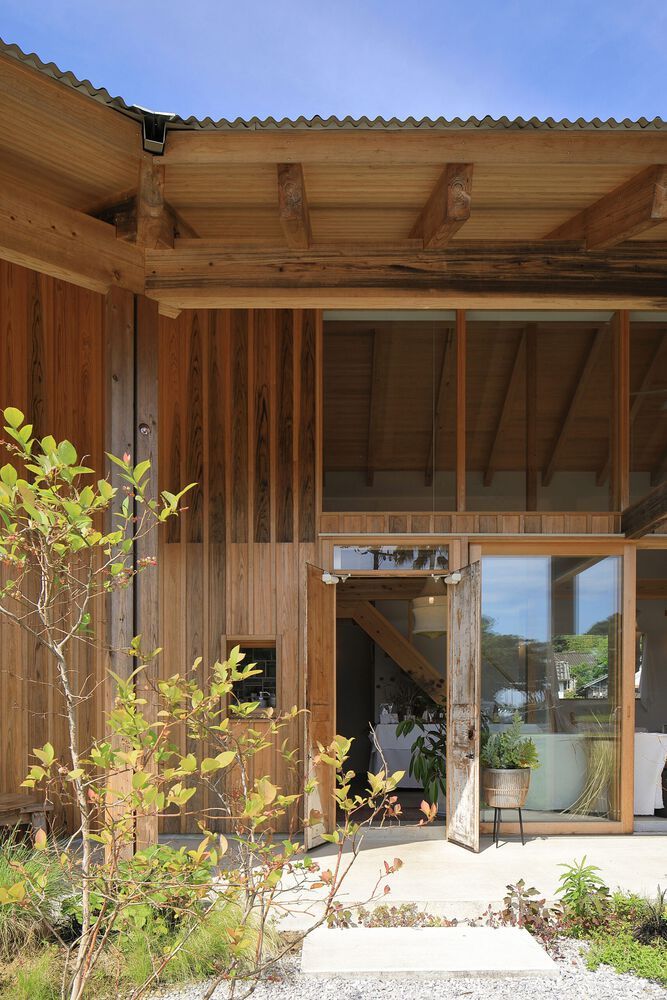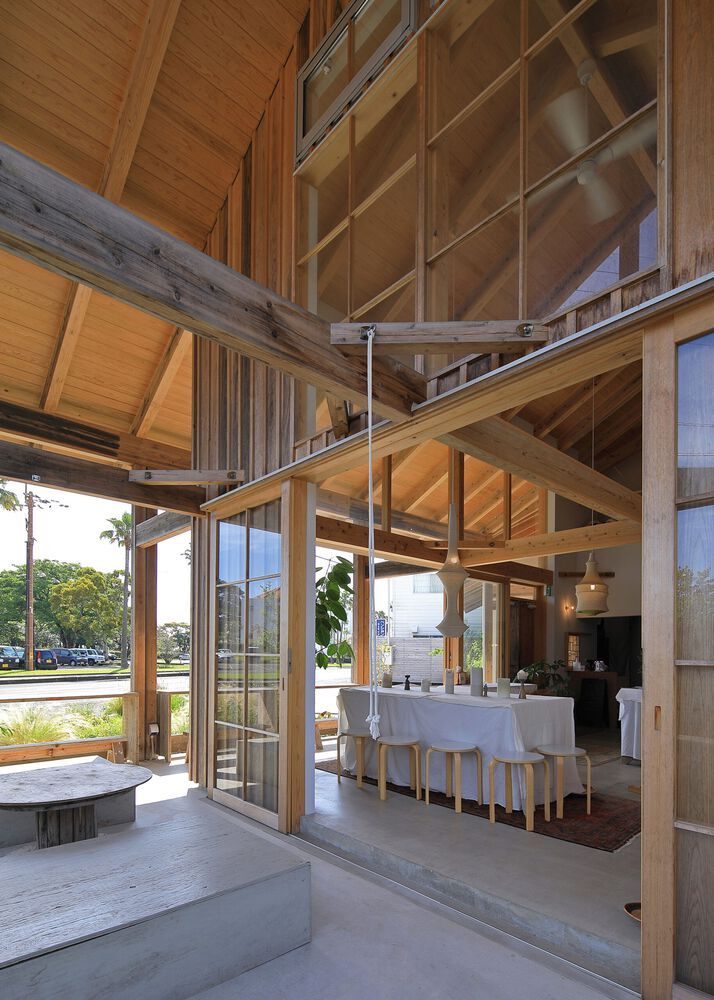查看完整案例


收藏

下载

翻译
Aoshima is a small mysterious island in the Pacific Ocean. In the center of the island, there is a shrine that has a circumference of 1.5 km and is overgrown with subtropical vegetation. This project consists of a café and the client's residence. The site faces a main road, backdropped by the Pacific Ocean, spreading out eastwards complemented by a park called "Kodomo no Kuni" across the road. To the west, a mountain range can be seen across the railroad tracks, making the site a kind of boundary between the mountains and the sea.
I have always thought that "a place with forest trees as pillars and just a roof between the trees" would be most comfortable in a subtropical region such as this. A space where the wind passes through and where one is protected from the strong sunlight and rain. We thought that such a primitive space would be appropriate for this location. Therefore, we proposed a generous space in which the inside and outside blend together, as if a large roof had been gently erected over the site, with 40%, or almost half, of the building area being terraces. The building is placed on the full north-south width of the site, and the northern and southern ends of the building are open semi-outdoor terraces on three sides.
The large gable roof, with a 5" slope, is covered with white galvalume steel corrugated plates, when combined with the cedar shingles on the exterior walls create a primitive appearance and form. The gable roof and the terrace, open on three sides, were designed not only for their openness and primitiveness but also to mitigate the effects of strong typhoon winds.
The terrace and interior have a large atrium that takes advantage of the large roof. Wooden windows that can be opened fully allow the wind from the Pacific Ocean to pass through, spreading the scent of the sea into the space. The western sun shines in from the western mountain peaks. Here, the sun of the west is not a nuisance but a blessing of nature. Every corner of the interior and exterior space is filled with light, and the light dissolves the boundaries ambiguously.
The café was named 'Anandah' before its completion. In Sanskrit, it means "happiness, being free from all limitations. We hope that the time spent in this space, where the boundaries between inside and outside have been eliminated, will trigger a little happiness for visitors.
客服
消息
收藏
下载
最近

































